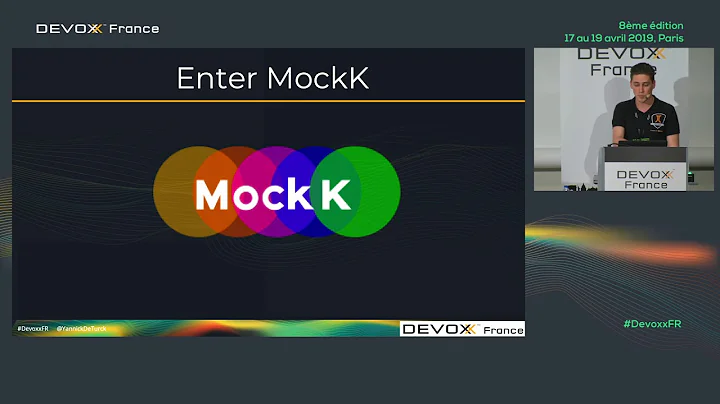How to mock a Kotlin singleton object?
Solution 1
Just make you object implement an interface, than you can mock you object with any mocking library. Here example of Junit + Mockito + Mockito-Kotlin:
import com.nhaarman.mockito_kotlin.mock
import com.nhaarman.mockito_kotlin.whenever
import org.junit.Assert.assertEquals
import org.junit.Test
object SomeObject : SomeInterface {
override fun someFun():String {
return ""
}
}
interface SomeInterface {
fun someFun():String
}
class SampleTest {
@Test
fun test_with_mock() {
val mock = mock<SomeInterface>()
whenever(mock.someFun()).thenReturn("42")
val answer = mock.someFun()
assertEquals("42", answer)
}
}
Or in case if you want mock SomeObject inside callerFun:
import com.nhaarman.mockito_kotlin.mock
import com.nhaarman.mockito_kotlin.whenever
import org.junit.Assert.assertEquals
import org.junit.Test
object SomeObject : SomeInterface {
override fun someFun():String {
return ""
}
}
class Caller(val someInterface: SomeInterface) {
fun callerFun():String {
return "Test ${someInterface.someFun()}"
}
}
// Example of use
val test = Caller(SomeObject).callerFun()
interface SomeInterface {
fun someFun():String
}
class SampleTest {
@Test
fun test_with_mock() {
val mock = mock<SomeInterface>()
val caller = Caller(mock)
whenever(mock.someFun()).thenReturn("42")
val answer = caller.callerFun()
assertEquals("Test 42", answer)
}
}
Solution 2
There's a very nice mocking library for Kotlin - Mockk, which allows you to mock objects, the exact same way you're desiring.
As of its documentation:
Objects can be transformed to mocks following way:
object MockObj {
fun add(a: Int, b: Int) = a + b
}
mockkObject(MockObj) // aplies mocking to an Object
assertEquals(3, MockObj.add(1, 2))
every { MockObj.add(1, 2) } returns 55
assertEquals(55, MockObj.add(1, 2))
To revert back use unmockkAll or unmockkObject:
@Before
fun beforeTests() {
mockkObject(MockObj)
every { MockObj.add(1,2) } returns 55
}
@Test
fun willUseMockBehaviour() {
assertEquals(55, MockObj.add(1,2))
}
@After
fun afterTests() {
unmockkAll()
// or unmockkObject(MockObj)
}
Despite Kotlin language limits you can create new instances of objects if testing logic needs that:
val newObjectMock = mockk<MockObj>()
Solution 3
Besides using Mockk library, which is quite convenient, one could mock an object simply with Mockito and reflection. A Kotlin object is just a regular Java class with a private constructor and an INSTANCE static field, with reflection one can replace the value of INSTANCE with a mocked object. After the test the original should be restored so that the change won't affect other tests
Using Mockito Kotlin (one needs to add an extension configuration as described here to mock final classes):
testCompile "com.nhaarman:mockito-kotlin:1.5.0"
A first fun could replace the value of the static INSTANCE field in the object class and return the previous value
fun <T> replaceObjectInstance(clazz: Class<T>, newInstance: T): T {
if (!clazz.declaredFields.any {
it.name == "INSTANCE" && it.type == clazz && Modifier.isStatic(it.modifiers)
}) {
throw InstantiationException("clazz ${clazz.canonicalName} does not have a static " +
"INSTANCE field, is it really a Kotlin \"object\"?")
}
val instanceField = clazz.getDeclaredField("INSTANCE")
val modifiersField = Field::class.java.getDeclaredField("modifiers")
modifiersField.isAccessible = true
modifiersField.setInt(instanceField, instanceField.modifiers and Modifier.FINAL.inv())
instanceField.isAccessible = true
val originalInstance = instanceField.get(null) as T
instanceField.set(null, newInstance)
return originalInstance
}
Then you could have a fun that will create a mock instance of the object and replace the original value with the mocked one, returning the original so that it can be reset later
fun <T> mockObject(clazz: Class<T>): T {
val constructor = clazz.declaredConstructors.find { it.parameterCount == 0 }
?: throw InstantiationException("class ${clazz.canonicalName} has no empty constructor, " +
"is it really a Kotlin \"object\"?")
constructor.isAccessible = true
val mockedInstance = spy(constructor.newInstance() as T)
return replaceObjectInstance(clazz, mockedInstance)
}
Add some Kotlin sugar
class MockedScope<T : Any>(private val clazz: Class<T>) {
fun test(block: () -> Unit) {
val originalInstance = mockObject(clazz)
block.invoke()
replaceObjectInstance(clazz, originalInstance)
}
}
fun <T : Any> withMockObject(clazz: Class<T>) = MockedScope(clazz)
And finally, given an object
object Foo {
fun bar(arg: String) = 0
}
You could test it this way
withMockObject(Foo.javaClass).test {
doAnswer { 1 }.whenever(Foo).bar(any())
Assert.assertEquals(1, Foo.bar(""))
}
Assert.assertEquals(0, Foo.bar(""))
Solution 4
You can mock Object without any extra library, by using class delegates.
Here is my proposal
val someObjectDelegate : SomeInterface? = null
object SomeObject: by someObjectDelegate ?: SomeObjectImpl
object SomeObjectImpl : SomeInterface {
fun someFun() {
println("SomeObjectImpl someFun called")
}
}
interface SomeInterface {
fun someFun()
}
In your tests you can set delegate object that will change behaviour, otherwise it will use it's real implementation.
@Beofre
fun setUp() {
someObjectDelegate = object : SomeInterface {
fun someFun() {
println("Mocked function")
}
}
// Will call method from your delegate
SomeObject.someFun()
}
Of course names above are bad, but for the sake of an example it shows the purpose.
After SomeObject is initialised delegate will handle all the functions.
More you can find in official documentation
Solution 5
For Mockito, we can use Mockito.mockStatic()
Mockito.mockStatic(SomeObject::class.java).use { mocked ->
mocked.`when`<SomeType> { SomeObject.callAFunction() }
.thenReturn(someMockedValue)
// Your test goes here
}
Ouside use's scope, the value of callAFunction() is reset
Related videos on Youtube
user3284037
Updated on July 09, 2022Comments
-
user3284037 almost 2 years
Given a Kotlin singleton object and a fun that call it's method
object SomeObject { fun someFun() {} } fun callerFun() { SomeObject.someFun() }Is there a way to mock call to
SomeObject.someFun()? -
 LeoColman over 6 yearsThis looks like an anti-pattern... One shouldn't create extra classes/interfaces in main code just for the purpose of testing!
LeoColman over 6 yearsThis looks like an anti-pattern... One shouldn't create extra classes/interfaces in main code just for the purpose of testing! -
 Ruslan over 6 yearsNot extra classes, just interfaces. And you should do it because this is best practice for testing on JVM.
Ruslan over 6 yearsNot extra classes, just interfaces. And you should do it because this is best practice for testing on JVM. -
 azizbekian about 6 yearsBasically, you are relying on Kotlin implementation details: anytime Kotile designers decide to change the implementation of
azizbekian about 6 yearsBasically, you are relying on Kotlin implementation details: anytime Kotile designers decide to change the implementation ofobjectclasses then you should update all your tests. -
 lelloman about 6 yearsWell, you wouldn't need to change all your tests, only the mocking function. But most importantly, if the implementation of
lelloman about 6 yearsWell, you wouldn't need to change all your tests, only the mocking function. But most importantly, if the implementation ofobjectchanged, you would need to recompile older code. If you compileFoo.bar()today, the compiled outcome would use anINSTANCEfield as well. -
Ch Vas over 5 yearsThat also works for me! Using mockito-kotlin
2.0.0-RC2, haven't checked if version 2 provides something more straight forward though. -
 LeoColman over 4 yearsTheoretically, when you do this you should also test that your delegates work correctly, and writing a test for that will also require a delegate and so on... Using a mocked alternative, we trust that t he mock library is tested itself, and we don't need to add extra boilerplate and extra lines for this concept
LeoColman over 4 yearsTheoretically, when you do this you should also test that your delegates work correctly, and writing a test for that will also require a delegate and so on... Using a mocked alternative, we trust that t he mock library is tested itself, and we don't need to add extra boilerplate and extra lines for this concept -
 Hatzen about 4 yearsAlso so question didnt say so but in android instrumentation test this wont work with devices api lower than pie: mockk.io/ANDROID.html therefore Ruslans answer is more safe to use
Hatzen about 4 yearsAlso so question didnt say so but in android instrumentation test this wont work with devices api lower than pie: mockk.io/ANDROID.html therefore Ruslans answer is more safe to use -
 Hatzen about 4 yearsFor sure using a mock lib is the better approach but not possible for android instrumentationtest lower than android pie. Therefor this solution looks pretty good!
Hatzen about 4 yearsFor sure using a mock lib is the better approach but not possible for android instrumentationtest lower than android pie. Therefor this solution looks pretty good! -
Serdar Samancıoğlu over 2 yearsUsually mock.someFun() is called in the class that is being tested, not in test class. Since you can't mock the object in the actual it won't work.
-
Bruce about 2 yearsthis is pretty neat without using any library







